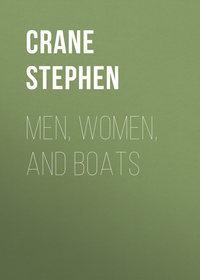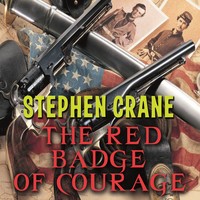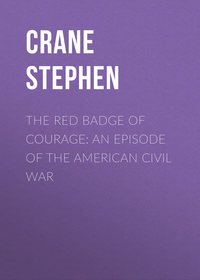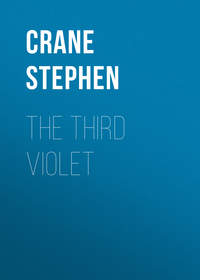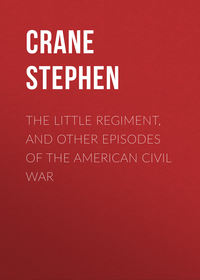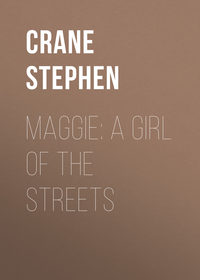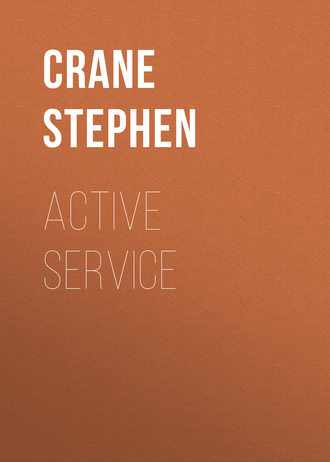 полная версия
полная версияActive Service
" Some stories ? " she enquired. " Some stories about you? What do you mean? Do you mean that I remember stories I may happen to hear about people? "
There was another pause and then Coleman's face flared red.
He beat his hand violently upon a table. " Good God, Marjory!
Don't make a fool of me. Don't make this kind of a fool of me, at any rate. Tell me what you mean. Explain-"
She laughed at him. " Explain? Really, your vocabulary is getting extensive, but it is dreadfully awkward to ask people to explain when there is nothing to explain."
He glanced at her, " I know as well as you do that your father is taking you to Greece in order to get rid of me."
" And do people have to go to Greece in order to get rid of you? " she asked, civilly. " I think you are getting excited."
" Marjory," he began, stormily. She raised her hand. " Hush," she said, "there is somebody coming." A bell had rung. A maid entered the room. " Mr. Coke," she said. Marjory nodded. In the interval of waiting, Coleman gave the girl a glance that mingled despair with rage and pride. Then Coke burst with half-tamed rapture into the room. " Oh, Miss Wainwright," he almost shouted, " I can't tell you how glad I am. I just heard to-day you were going. Imagine it. It will be more—oh, how are you Coleman, how are you " "
Marjory welcomed the new-comer with a cordiality that might not have thrilled Coleman with pleasure. They took chairs that formed a triangle and one side of it vibrated with talk. Coke and Marjory engaged in a tumultuous conversation concerning the prospective trip to Greece. The Sunday editor, as remote as if the apex of his angle was the top of a hill, could only study the girl's clear profile. The youthful voices of the two others rang like bells. He did not scowl at Coke; he merely looked at him as if be gently disdained his mental calibre. In fact all the talk seemed to tire him; it was childish; as for him, he apparently found this babble almost insupportable.
" And, just think of the camel rides we'll have," cried Coke.
" Camel rides," repeated Coleman, dejectedly. " My dear Coke."
Finally he arose like an old man climbing from a sick bed. "Well, I am afraid I must go, Miss Wainwright." Then he said affectionately to Coke: " Good-bye, old boy. I hope you will have a good time."
Marjory walked with him to the door. He shook her hand in a friendly fashion. " Good-bye, Marjory,' he said. " Perhaps it may happen that I shan't see you again before you start for Greece and so I had best bid you God-speed–or whatever the term is now. You will have a charming time; Greece must be a delightful place. Really, I envy you, Marjory. And now my dear child "-his voice grew brotherly, filled with the patronage of generous fraternal love, " although I may never see you again let me wish you fifty as happy years as this last one has been for me." He smiled frankly into her eyes; then dropping her hand, he went away.
Coke renewed his tempest of talk as Marjory turned toward him. But after a series of splendid eruptions, whose red fire illumined all of ancient and modem Greece, he too went away.
The professor was in his. library apparently absorbed in a book when a tottering pale-faced woman appeared to him and, in her course toward a couch in a corner of the room, described almost a semi-circle. She flung herself face downward. A thick strand of hair swept over her shoulder. " Oh, my heart is broken! My heart is broken! "
The professor arose, grizzled and thrice-old with pain. He went to the couch, but he found himself a handless, fetless man. " My poor child," he said. " My poor child." He remained listening stupidly to her convulsive sobbing. A ghastly kind of solemnity came upon the room.
Suddenly the girl lifted herself and swept the strand of hair away from her face. She looked at the professor with the wide- open dilated eyes of one who still sleeps. " Father," she said in a hollow voice, " he don't love me. He don't love me. He don't love me. at all. You were right, father." She began to laugh.
"Marjory," said the professor, trembling. "Be quiet, child. Be quiet."
" But," she said, " I thought he loved me—I was sure of it. But it don't-don't matter. I—I can't get over it. Women-women, the- but it don't matter."
" Marjory," said the professor. " Marjory, my poor daughter."
She did not heed his appeal, but continued in a dull whisper. " He was playing with me. He was—was-was flirting with me. He didn't care when I told him—I told him— I was going-going away." She turned her face wildly to the cushions again. Her young shoulders shook as if they might break. " Wo-men-women-they always–"
CHAPTER V
By a strange mishap of management the train which bore Coleman back toward New York was fetched into an obscure side-track of some lonely region and there compelled to bide a change of fate. The engine wheezed and sneezed like a paused fat man. The lamps in the cars pervaded a stuffy odor of smoke and oil. Coleman examined his case and found only one cigar. Important brakemen proceeded rapidly along the aisles, and when they swung open the doors, a polar wind circled the legs of the passengers. " Well, now, what is all this for? " demanded Coleman, furiously. " I want to get back to New York."
The conductor replied with sarcasm, " Maybe you think I'm stuck on it " I ain't running the road. I'm running this train, and I run it according to orders." Amid the dismal comforts of the waiting cars, Coleman felt all the profound misery of the rebuffed true lover. He had been sentenced, he thought, to a penal servitude of the heart, as he watched the dusky, vague ribbons of smoke come from the lamps and felt to his knees the cold winds from the brakemen's busy flights. When the train started with a whistle and a jolt, he was elate as if in his abjection his beloved's hand had reached to him from the clouds.
When he had arrived in New York, a cab rattled him to an uptown hotel with speed. In the restaurant he first ordered a large bottle of champagne. The last of the wine he finished in sombre mood like an unbroken and defiant man who chews the straw that litters his prison house. During his dinner he was continually sending out messenger boys. He was arranging a poker party. Through a window he watched the beautiful moving life of upper Broadway at night, with its crowds and clanging cable cars and its electric signs, mammoth and glittering, like the jewels of a giantess.
Word was brought to him that the poker players were arriving. He arose joyfully, leaving his cheese. In the broad hall, occupied mainly by miscellaneous people and actors, all deep in leather chairs, he found some of his friends waiting. They trooped up stairs to Coleman's rooms, where as a preliminary, Coleman began to hurl books and papers from the table to the floor. A boy came with drinks. Most of the men, in order to prepare for the game, removed their coats and cuffs and drew up the sleeves of their shirts. The electric globes shed a blinding light upon the table. The sound of clinking chips arose; the elected banker spun the cards, careless and dexterous.
Later, during a pause of dealing, Coleman said:
" Billie, what kind of a lad is that young Coke up at Washurst?"
He addressed an old college friend.
" Oh, you mean the Sophomore Coke? " asked the friend.
" Seems a decent sort of a fellow. I don't know. Why? "
"Well, who is he? Where does he come from? What do you know about him? "
" He's one of those Ohio Cokes-regular thing— father millionaire-used to be a barber-good old boy -why? "
" Nothin'," said Coleman, looking at his cards. " I know the lad. I thought he was a good deal of an ass. I wondered who his people were."
" Oh, his people are all right-in one way. Father owns rolling mills. Do you raise it, Henry? Well, in order to make vice abhorrent to the young, I'm obliged to raise back."
" I'll see it," observed Coleman, slowly pushing forward two blue chips. Afterward he reached behind him and took another glass of wine.
To the others Coleman seemed to have something bitter upon his mind. He played poker quietly, steadfastly, and, without change of eye, following the mathematical religion of the game. Outside of the play he was savage, almost insupportable. " What's the matter with you, Rufus ? " said his old college friend. " Lost your job? Girl gone back on you? You're a hell of -a host. We don't get any. thing but insults and drinks."
Late at night Coleman began to lose steadily. In the meantime he drank glass after glass of wine. Finally he made reckless bets on a mediocre hand and an opponent followed him thoughtfully bet by bet, undaunted, calm, absolutely without emotion. Coleman lost; he hurled down his cards. " Nobody but a damned fool would have seen that last raise on anything less than a full hand."
" Steady. Come off. What's wrong with you, Rufus ? " cried his guests.
" You're not drunk, are you ? " said his old college friend, puritanically.
" 'Drunk' ?" repeated Coleman.
" Oh, say," cried a man, " let's play cards. What's all this gabbling ? "
It was when a grey, dirty light of dawn evaded the thick curtains and fought on the floor with the feebled electric glow that Coleman, in the midst of play, lurched his chest heavily upon the table. Some chips rattled to the floor. " I'll call you," he murmured, sleepily.
" Well," replied a man, sternly, " three kings."
The other players with difficulty extracted five cards from beneath Coleman's pillowed head. " Not a pair! Come, come, this won't do. Oh, let's stop playing. This is the rottenest game I ever sat in. Let's go home. Why don't you put him. to bed, Billie?"
When Coleman awoke next morning, he looked back upon the poker game as something that had transpired in previous years. He dressed and went down to the grill-room. For his breakfast he ordered some eggs on toast and a pint of champagne. A privilege of liberty belonged to a certain Irish waiter, and this waiter looked at him, grinning. "Maybe you had a pretty lively time last night, Mr Coleman? "
" Yes, Pat," answered Coleman, " I did. It was all because of an unrequited affection, Patrick." The man stood near, a napkin over his arm. Coleman went on impressively. " The ways of the modern lover are strange. Now, I, Patrick, am a modern lover, and when, yesterday, the dagger of disappointment was driven deep into my heart, I immediately played poker as hard as I could and incidentally got loaded. This is the modern point of view. I understand on good authority that in old times lovers used to. languish. That is probably a lie, but at any rate we do not, in these times, languish to any great extent. We get drunk. Do you understand, Patrick? " The waiter was used to a harangue at Coleman's breakfast time. He placed his hand over his mouth and giggled. "Yessir."
" Of course," continued Coleman, thoughtfully. " It might be pointed out by uneducated persons that it is difficult to maintain a high standard of drunkenness for the adequate length of time, but in the series of experiments which I am about to make I am sure I can easily prove them to be in the wrong."
" I am sure, sir," said the waiter, " the young ladies would not like to be hearing you talk this way."
" Yes; no doubt, no doubt. The young ladies have still quite medieval ideas. They don't understand. They still prefer lovers to languish."
" At any rate, sir, I don't see that your heart is sure enough broken. You seem to take it very easy. "
" Broken! " cried Coleman. " Easy? Man, my heart is in fragments. Bring me another small bottle."
CHAPTER VI
Six weeks later, Coleman went to the office of the proprietor of the Eclipse. Coleman was one of those smooth-shaven old-young men who wear upon some occasions a singular air of temperance and purity. At these times, his features lost their quality of worldly shrewdness and endless suspicion and bloomed as the face of some innocent boy. It then would be hard to tell that he had ever encountered even such a crime as a lie or a cigarette. As he walked into the proprietor's office he was a perfect semblance of a fine, inexperienced youth. People usually concluded this change was due to a Turkish bath or some other expedient of recuperation, but it was due probably to the power of a physical characteristic.
" Boss in ? " said Coleman.
" Yeh," said the secretary, jerking his thumb toward an inner door. In his private office, Sturgeon sat on the edge of the table dangling one leg and dreamily surveying the wall. As Coleman entered he looked up quickly. "Rufus," he cried, " you're just the man I wanted to see. I've got a scheme. A great scheme." He slid from the table and began to pace briskly to and fro, his hands deep in his trousers' pockets, his chin sunk in his collar, his light blue eyes afire with interest. " Now listen. This is immense. The Eclipse enlists a battalion of men to go to Cuba and fight the Spaniards under its own flag-the Eclipse flag. Collect trained officers from here and there-enlist every young devil we see-drill 'em—best rifles-loads of ammunition- provisions-staff of doctors and nurses -a couple of dynamite guns-everything complete best in the world. Now, isn't that great ? What's the matter with that now ? Eh? Eh? Isn't that great? It's great, isn't it? Eh? Why, my boy, we'll free-"
Coleman did not seem to ignite. " I have been arrested four or five times already on fool matters connected with the newspaper business," he observed, gloomily, " but I've never yet been hung. I think your scheme is a beauty."
Sturgeon paused in astonishment. " Why, what happens to be the matter with you ? What are you kicking about ? "
Coleman made a slow gesture. " I'm tired," he answered. " I need a vacation."
"Vacation!" cried Sturgeon. "Why don't you take one then ? "
" That's what I've come to see you about. I've had a pretty heavy strain on me for three years now, and I want to get a little rest."
" Well, who in thunder has been keeping you from it? It hasn't been me."
" I know it hasn't been you, but, of course, I wanted the paper to go and I wanted to have my share in its success, but now that everything is all right I think I might go away for a time if you don't mind."
" Mind! " exclaimed Sturgeon falling into his chair and reaching for his check book. "Where do you want to go? How long do you want to be gone? How much money do you want ?"
" I don't want very much. And as for where I want to go, I thought I might like to go to Greece for a while."
Sturgeon had been writing a check. He poised his pen in the air and began to laugh. " That's a queer place to go for a rest. Why, the biggest war of modern times—a war that may involve all Europe-is likely to start there at any moment. You are not likely to get any rest in Greece."
" I know that," answered Coleman. " I know there is likely to be a war there. But I think that is exactly what would rest me. I would like to report the war."
"You are a queer bird," answered Sturgeon deeply fascinated with this new idea. He had apparently forgotten his vision of a Cuban volunteer battalion. " War correspondence is about the most original medium for a rest I ever heard of."
"Oh, it may seem funny, but really, any change will be good for me now. I've been whacking at this old Sunday edition until I'm sick of it, and some,. times I wish the Eclipse was in hell."
That's all right," laughed the proprietor of the Eclipse. " But I still don't see how you 'are going to get any vacation out of a war that will upset the whole of Europe. But that's your affair. If you want to become the chief correspondent in the field in case of any such war, why, of course, I would be glad to have you. I couldn't get anybody better. But I don't see where your vacation comes in."
" I'll take care of that," answered Coleman. " When I take a vacation I want to take it my own way, and I think this will be a vacation because it will be different -don't you see-different ? "
" No, I don't see any sense in it, but if you think that is the way that suits you, why, go ahead. How much money do you want ? "
" I don't want much. just enough to see me through nicely."
Sturgeon scribbled on his check book and then ripped a check from it. " Here's a thousand dollars. Will that do you to start with? "
" That's plenty."
"When do you want to start ? "
" To-morrow."
"Oh," said Sturgeon. " You're in a hurry." This impetuous manner of exit from business seemed to appeal to him. " To-morrow," he repeated smiling. In reality he was some kind of a poet using his millions romantically, spending wildly on a sentiment that might be with beauty or without beauty, according to the momentary vacillation. The vaguely-defined desperation in Coleman's last announcement appeared to delight him. He grinned and placed the points of his fingers together stretching out his legs in a careful attitude of indifference which might even mean disapproval. " To-morrow," he murmured teasingly.
" By jiminy," exclaimed Coleman, ignoring the other man's mood, " I'm sick of the whole business. I've got out a Sunday paper once a week for three years and I feel absolutely incapable of getting out another edition. It would be all right if we were running on ordinary lines, but when each issue is more or less of an attempt to beat the previous issue, it becomes rather wearing, you know. If I can't get a vacation now I take one later in a lunatic asylum."
" Why, I'm not objecting to your having a vacation. I'm simply marvelling at the kind of vacation you want to take. And 'to-morrow,' too, eh ? " " Well, it suits me," muttered Coleman, sulkily.
" Well, if it suits you, that's enough. Here's your check. Clear out now and don't let me see you again until you are thoroughly rested, even if it takes a year." He arose and stood smiling. He was mightily pleased with himself. He liked to perform in this way. He was almost seraphic as he thrust the check for a thousand dollars toward Coleman.
Then his manner changed abruptly. " Hold on a minute. I must think a little about this thing if you are going to manage the correspondence. Of course it will be a long and bloody war."
"You bet."
"The big chance is that all Europe will be dragged into it. Of course then you would have to come out of Greece and take up abetter position-say Vienna."
"No, I wouldn't care to do that," said Coleman positively. "I just want to take care of the Greek end of it."
" It will be an idiotic way to take a vacation," observed Sturgeon.
" Well, it suits me," muttered Coleman again. " I tell you what it is-" he added suddenly. "I've got some private reasons- see ? "
Sturgeon was radiant with joy. " Private reasons." He was charmed by the sombre pain in Coleman's eyes and his own ability to eject it. "Good. Go now and be blowed. I will cable final instruction to meet you in London. As soon as you get to Greece, cable me an account of the situation there and we will arrange our plans." He began to laugh. " Private reasons. Come out to dinner with me."
" I can't very well," said Coleman. " If I go tomorrow, I've got to pack-"
But here the real tyrant appeared, emerging suddenly from behind the curtain of sentiment, appearing like a red devil in a pantomine. " You can't ? " snapped Sturgeon. " Nonsense–"
CHAPTER VII
SWEEPING out from between two remote, half-submerged dunes on which stood slender sentry light. houses, the steamer began to roll with a gentle insinuating motion. Passengers in their staterooms saw at rhythmical intervals the spray racing fleetly past the portholes. The waves grappled hurriedly at the sides of the great flying steamer and boiled discomfited astern in a turmoil of green and white. From the tops of the enormous funnels streamed level masses of smoke which were immediately torn to nothing by the headlong wind. Meanwhile as the steamer rushed into the northeast, men in caps and ulsters comfortably paraded the decks and stewards arranged deck chairs for the reception of various women who were coming from their cabins with rugs.
In the smoking room, old voyagers were settling down comfortably while new voyagers were regarding them with a diffident respect. Among the passengers Coleman found a number of people whom he knew, including a wholesale wine merchant, a Chicago railway magnate and a New York millionaire. They lived practically in the smoking room. Necessity drove them from time to time to the salon, or to their berths. Once indeed the millionaire was absent, from the group while penning a short note to his wife.
When the Irish coast was sighted Coleman came on deck to look at it. A tall young woman immediately halted in her walk until he had stepped up to her. " Well, of all ungallant men, Rufus Coleman, you are the star," she cried laughing and held out her hand.
" Awfully sorry, I'm sure," he murmured. " Been playing poker in the smoking room all voyage. Didn't have a look at the passenger list until just now. Why didn't you send me word?" These lies were told so modestly and sincerely that when the girl flashed her, brilliant eyes full upon their author there was a mixt of admiration in the indignation.
" Send you a card " I don't believe you can read, else you would have known I was to sail on this steamer. If I hadn't been ill until to-day you would have seen me in the salon. I open at the Folly Theatre next week. Dear ol' Lunnon, y' know."
" Of course, I knew you were going," said Coleman.
"But I thought you were to go later. What do you open in? "
" Fly by Night. Come walk along with me. See those two old ladies " They've been watching for me like hawks ever since we left New York. They expected me to flirt with every man on board. But I've fooled them. I've been just as g-o-o-d. I had to be."
As the pair moved toward the stern, enormous and radiant green waves were crashing futilely after the steamer. Ireland showed a dreary coast line to the north. A wretched man who had crossed the Atlantic eighty-four times was declaiming to a group of novices. A venerable banker, bundled in rugs, was asleep in his deck chair.
" Well, Nora," said Coleman, " I hope you make a hit in London. You deserve it if anybody does. You've worked hard."
"Worked hard," cried the girl. "I should think so. Eight years ago I was in the rear row. Now I have the centre of the stage whenever I want it. I made Chalmers cut out that great scene in the second act between the queen and Rodolfo. The idea! Did he think I would stand that ? And just because he was in love with Clara Trotwood, too."
Coleman was dreamy. " Remember when I was dramatic man for the Gazette and wrote the first notice ? "
" Indeed, I do," answered the girl affectionately. " Indeed, I do, Rufus. Ah, that was a great lift. I believe that was the first thing that had an effect on old Oliver. Before that, he never would believe that I was any good. Give me your arm, Rufus. Let's parade before the two old women." Coleman glanced at her keenly. Her voice had trembled slightly. Her eyes were lustrous as if she were about to weep.
" Good heavens," he said. " You are the same old Nora Black. I thought you would be proud and 'aughty by this time."
" Not to my friends," she murmured., " Not to my friends. I'm always the same and I never forget. Rufus."
" Never forget what? " asked Coleman.
" If anybody does me a favour I never forget it as long as I live," she answered fervently.
" Oh, you mustn't be so sentimental, Nora. You remember that play you bought from little Ben Whipple, just because he had once sent you some flowers in the old days when you were poor and happened to bed sick. A sense of gratitude cost you over eight thousand dollars that time, didn't it? " Coleman laughed heartily.
" Oh, it wasn't the flowers at all," she interrupted seriously. " Of course Ben was always a nice boy, but then his play was worth a thousand dollars. That's all I gave him. I lost some more in trying to make it go. But it was too good. That was what was the matter. It was altogether too good for the public. I felt awfully sorry for poor little Ben."
"Too good?" sneered Coleman. "Too good? Too indifferently bad, you mean. My dear girl, you mustn't imagine that you know a good play. You don't, at all."
She paused abruptly and faced him. This regal, creature was looking at him so sternly that Coleman felt awed for a moment as if he, were in the presence of a great mind. " Do you mean to say that I'm not an artist ? " she asked.


